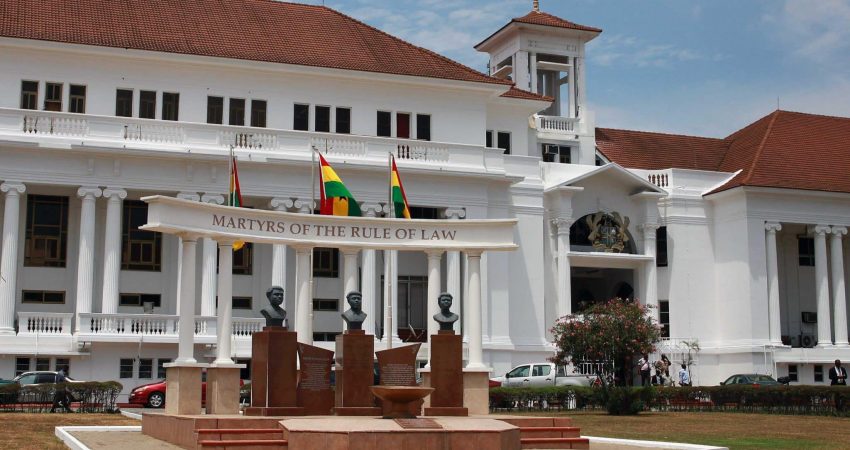The Supreme Court has affirmed the law requiring tax objectors to pay 30% of tax assessment to the Ghana Revenue Authority (GRA) before seeking redress.
In three separate cases the Supreme Court was invited to determine the constitutionality or otherwise of section 42(5)(b) of the Revenue Administration Act, 2016 (Act 915) (“Act 915”), as amended by the Revenue Administration (Amendment) Act, 2020 (Act 1029) which requires a tax objector to pay all outstanding taxes including thirty percent (30%) of the tax in dispute before he can seek redress and Order 54, Rule 4(1) of the High Court (Civil Procedure) Rules, 2004 (C.I 47) which requires a tax objector to pay twenty-five percent (25%) of the disputed tax before an objection could be heard by the High Court.
The cases are Richard Amo-Hene v Ghana Revenue Authority, Attorney–General & Judicial Service, Writ No. 11/08/2021; Kwasi Afrifa v Ghana Revenue Authority & Attorney-General, Reference No. 116/02/2022; and Export Finance Company Ltd v Ghana Revenue Authority & Attorney-General, Writ No. 11/07/2021.
Constitutionality of section 42(5)(b) of the Revenue Administration Act, 2016 (Act 915) (“Act 915”)
In separate decisions delivered on November 30, 2022, the Supreme Court affirmed section 42(5)(b) of Act 915 (“Act 915”) as constitutional. The Court held that the limitations to the right of access to the courts placed by section 42(5) of Act 915 are necessary to protect the tax administration system from abuse by taxpayers. The Court reasoned that given the slow pace of the justice delivery system in Ghana, the State’s revenue mobilization efforts could be threatened if there were no mechanisms in place to ensure citizens are not consistently filing frivolous objections.
Constitutionality of Order 54, Rule 4(1) of the High Court (Civil Procedure) Rules, 2004 (C.I 47)
In all three cases, the Court held that Order 54, Rule 4(1) of C.I 47 being subsidiary legislation is subservient to an Act of Parliament. The Court noted that Order 54 merely serves as a complement to section 42 of Act 915. As a result, where a tax objector is compliant with the requirement under Section 42(5)(b) and pays 30% of the tax assessed before raising an objection with the Commissioner-General of GRA, there is no additional requirement for the tax objector to pay a quarter (25%) of the tax assessed before appealing to the High Court in a tax appeal.
 Elikem Gadzekpo works with the Ghana Center for Democratic Development (CDD-Ghana)
Elikem Gadzekpo works with the Ghana Center for Democratic Development (CDD-Ghana)
















